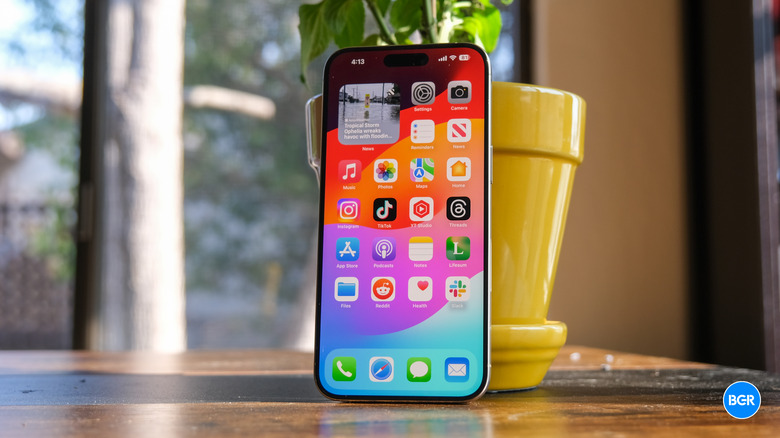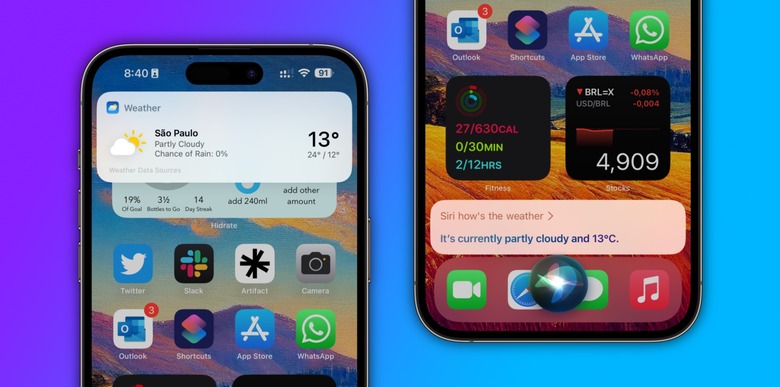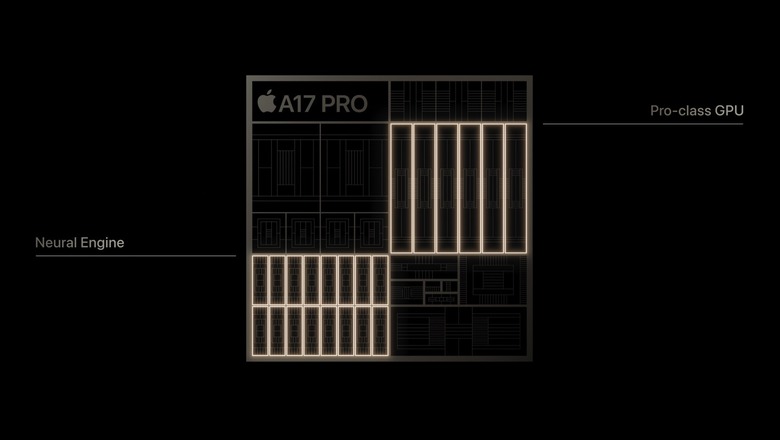Everyone Says The iPhone 16 Will Get Apple's Own AI And Smarter Siri - Here's Why
The Pixel 8 and especially the Galaxy S24 opened the doors to "AI phones" with built-in AI features. These will become the new norm in a world where AI like ChatGPT, Microsoft Copilot, and Google Gemini are becoming more interesting and exciting. Apple is unsurprisingly absent from this race, but I don't think we have to wait too long to see "Apple GPT" arrive on the iPhone. In fact, it'll probably happen as soon as WWDC 2024 this summer, when Apple unveils iOS 18 and the brand new Siri with generative AI.
This isn't just wishful thinking from a longtime iPhone user who is already excited about the prospect of an iPhone 16 with built-in AI features. Yet another new report just detailed all the behind-the-scene moves that indicate the imminent arrival of the Apple GPT. The report also suggests that Apple plans to offer different experiences than its top competitors, with a focus on on-device AI.
Acquisitions and AI jobs
A report from The Financial Times covers the trail of clues that indicate that Apple is getting ready to bring its own generative AI software to iPhones. After all, ChatGPT, Copilot, and other rivals are available on iPhone via standalone apps.
The FT points out the various moves Apple has been making recently that indicate a launch is near. First, Apple has been active on the acquisitions front, buying 21 AI startups since 2017. The report mentions the WaveOne purchase last year, a firm specializing in AI-powered video compressions. Comparatively, Microsoft purchased 12 AI companies, and Alphabet got eight during the same period.
But one can argue that Microsoft made a winning investment in ChatGPT, which is still the most popular generative AI software in town. As for Google, the company has been working on AI features for its software platforms for years.
On top of startup acquisitions, Apple has stepped up hiring for AI specialists. A report from Morgan Stanley shows that almost half of Apple's AI jobs mention "deep learning," a term that refers to the algorithms behind AI. One of Apple's key AI hires is Google's former AI exec, John Giannandrea, who joined in 2018.
Apple hasn't made any official announcements, and I wouldn't expect any until WWDC 2024 at the earliest. But Tim Cook did say last summer that Apple is investing responsibly in AI and the company "has been doing research across a wide range of AI technologies."
On-device AI on iPhone, the Apple way
All of the above are indications that Apple's own GPT product for the iPhone and Siri is imminent. The FT further says that industry insiders think Apple is working on its own large language models. The report again cites Morgan Stanley analysts, who expect Apple's WWDC event this summer to focus on generative AI and a new Siri experience powered by an Apple LLM.
Apple's goal might be to run its GPT programs directly on the iPhone, using the handset's resources and software rather than the cloud. That would be a massive departure from how ChatGPT, Copilot, and Gemini/Bard work. Even the Galaxy S24 relies on the cloud to power most of the phone's Galaxy AI features.
The report cites a recent breakthrough Apple made that might be relevant to such an endeavor. Apple found a way to use the handset's flash storage to run generative AI locally instead of boosting the RAM. I speculated that the research suggests the iPhone 16 won't receive the big memory upgrade some might think is necessary for on-device AI.
In addition, there's the Apple silicon that can make possible generative AI features on iPhones. The report cites the M3 Max announced recently, the iPhone 15 Pro's A17 Pro, but also the S9 chip of the Apple Watch Series 9 and Ultra 2.
New Siri capabilities
As for how the Apple GPT will work, the report also references another interesting piece of research from Apple that shows a different approach from ChatGPT. Apple released Ferret in October in partnership with Columbia University.
It's an open-source LLM that serves as a second pair of eyes. It tells the user what they're looking at. ChatGPT-like programs are text-based first. But most of them support multimodal input and image-based prompts.
Ferret could power Siri experiences where the virtual assistant can tell the user what brand of shirt a person on a FaceTime call is wearing and then help them place an order. The experience is similar to what Google's Circle to Search and new Lens technology can do on Android, including the Galaxy S24 series.
All that indicates Apple has been lining things up for the past few years. Whether Apple GPT is ready in full or just beta form, it could debut on iPhones as soon as this summer in Apple's iOS 18 beta. I would expect the iPhone 16 series to offer the best, most complete Apple GPT experience possible, thanks to the new hardware it'll deliver.


